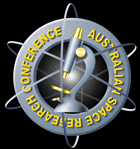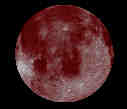 |
The 14th Australian Space Research Conference (ASRC), formerly the Australian Space Science Conference,will be held this year in Adelaide at the University of South Australia. Jointly sponsored by the National Committee for Space and Radio Science
and the National Space Society of Australia, and with support from the Australian Space Research Institute and the Mars Society of Australia, it will cover the areas of space science, space engineering, space industry, government space and space
education and outreach. More details can be found at
ASRC-14.
Details of previous conferences can be found at
Australian Space Science Conference.
|






